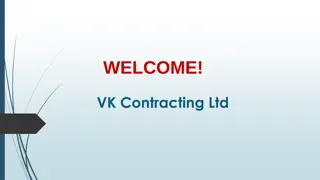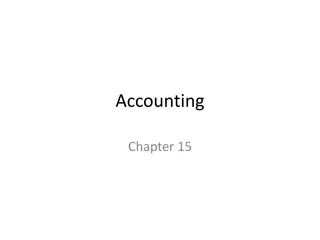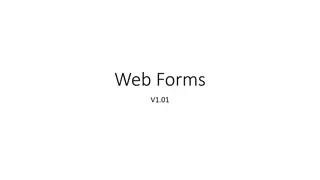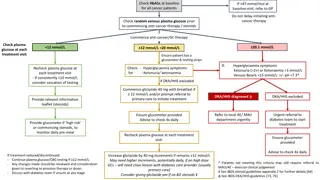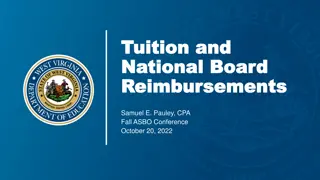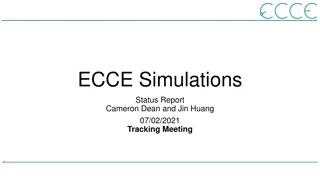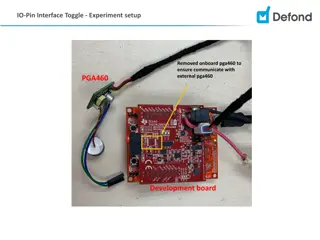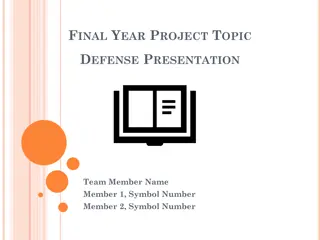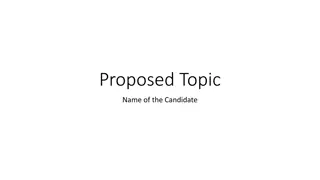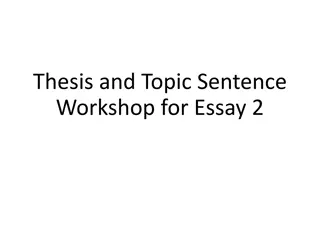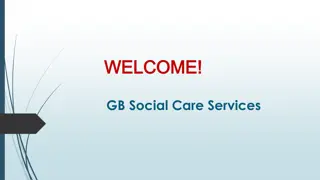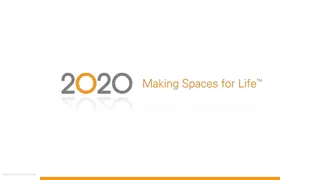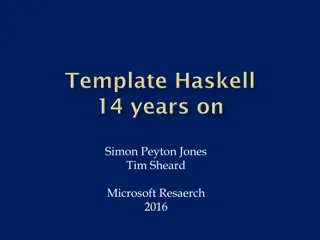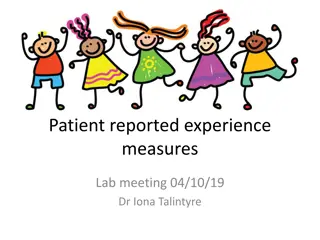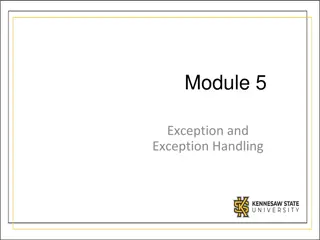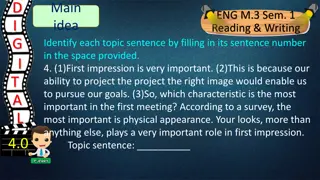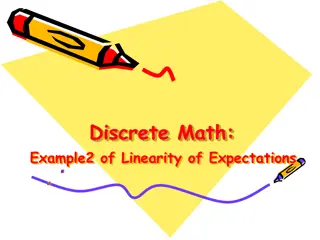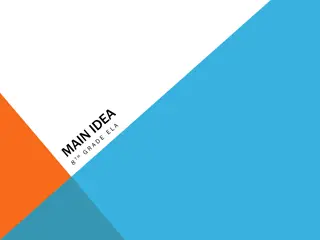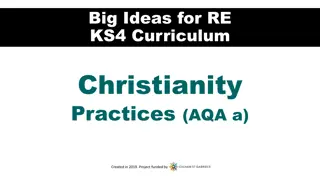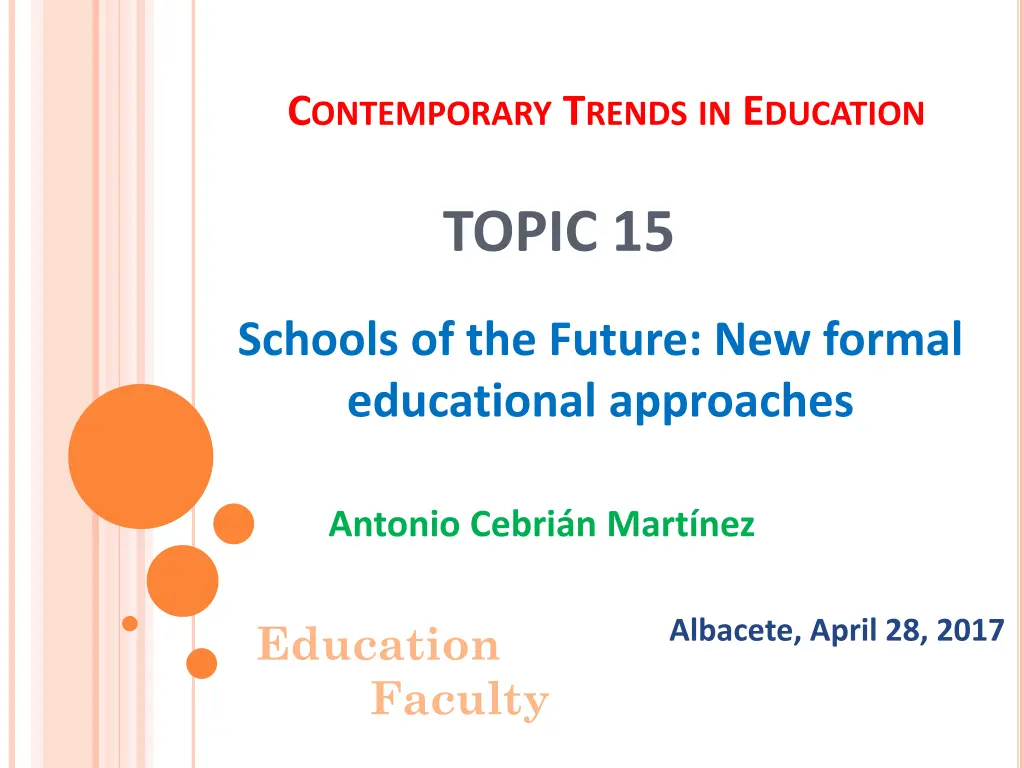
Future Schooling: New Approaches in Education
Explore the evolving landscape of education with a focus on postmodernism, information society, and the challenges faced by schools in the 21st century. The discussion delves into the changing roles of teachers, the impact of globalization, and the need for multicultural competencies in education.
Uploaded on | 2 Views
Download Presentation

Please find below an Image/Link to download the presentation.
The content on the website is provided AS IS for your information and personal use only. It may not be sold, licensed, or shared on other websites without obtaining consent from the author. If you encounter any issues during the download, it is possible that the publisher has removed the file from their server.
You are allowed to download the files provided on this website for personal or commercial use, subject to the condition that they are used lawfully. All files are the property of their respective owners.
The content on the website is provided AS IS for your information and personal use only. It may not be sold, licensed, or shared on other websites without obtaining consent from the author.
E N D
Presentation Transcript
CONTEMPORARY TRENDS IN EDUCATION TOPIC 15 Schools of the Future: New formal educational approaches Antonio Cebri n Mart nez Education Faculty Albacete, April 28, 2017
OVERVIEW 1. Introduction 2. Education, Postmodernism and the Information Society 3. The future of schooling 4. The challenges of School in the 21st Century
1. INTRODUCTION Right to education as an irreversible achievement and central element of the welfare state Education aims at the integral optimization of people, regardless of the ways of educating and the cultural manifestations in force Teachers will be increasingly needed but in a very different way than they were at the beginning of the 19th century Western science and technology has not provided more happiness or more justice, there are still inequalities of various kinds Education will continue to be public, but with less uniform learning Globalization establishes exchanges of ideas and news with great frequency and speed
2. EDUCATION, POSTMODERNITY AND THE INFORMATION SOCIETY Changes in the way culture is assimilated Society will give more importance to the generation and exchange of information rather than the production of manufactured goods, or the existence of shared political or social ideals Globalization will be an extraordinary opportunity to reach consensus on universal values (plural world) Failure and questioning of modern ideals Rejection of any totalitarianism dictated by the great economic corporations of capitalism and by the communication groups (especially by telematics)
2. EDUCATION, POSTMODERNITY AND THE INFORMATION SOCIETY Feeling of fraud, growing inequality and control of people's lives "Individualism" where the protection of the State disappears and teaches the citizen to fend for himself (family influence), loss of institutionalized collective ideals Problems for teachers, who have to teach knowledge, which is not fully researched, with immovable values that make up the culture and social relations School as a crossroads of cultures, will not be able to impart a homogenous culture to all, the teacher will need skills that allow dialogue and tolerance (multicultural position)
3. THE FUTURE PERSPECTIVE IN SCHOOLING Postmodern knowledge is based on technological communication Increasing periods of schooling Increasingly dual capitalist society Welfare State Crisis Stable work begins to become a scarce commodity The need to acquire knowledge has exceeded the framework of the school Permanent education since the knowledge loses validity The family will continue to play a fundamental role despite their difficulty in engaging or manage problems with their children. Future school: inclusive and open to all, shared social goals that allow the learning of democracy
4. THE CHALLENGES OF THE SCHOOL IN THE 21ST CENTURY Schools of the future should not reproduce the social class of students, although teachers should be aware of this as part of professional competence The school of the future should promote interpersonal communication It educate for assimilation and change It must not surrender and fight for an indispensable social recognition, relying on a deeply ethical sense and high social ideals It will bear in mind the distortions derived from the hidden curriculum Child culture should be taken into account It will be aware of the increased use of ICT It will encounter a diffuse limit between school and family
4. THE CHALLENGES OF THE SCHOOL IN THE 21ST CENTURY It will be independent of any denominational dogma It will favor the construction of the students' ideals in dialogue with others, in freedom and exercising their thinking It will take into account that the ethical requirements will be increasing, giving priority to training in democratic values It will fight for respect, cooperation, mutual aid and equal opportunities, developing contextualized learning and avoiding submission and conflict "What you really learn influences people's lives decisively" "The school can help to use knowledge to solve the difficulties and conflicts of life from one s own intellectual work"
4. THE CHALLENGES OF THE SCHOOL IN THE 21ST CENTURY SCHOOL FUNCTIONS Provide information highlighting that which is valuable Discerning the values involved in school learning Train effectively in the use of the basic tools that form the basis of learning

